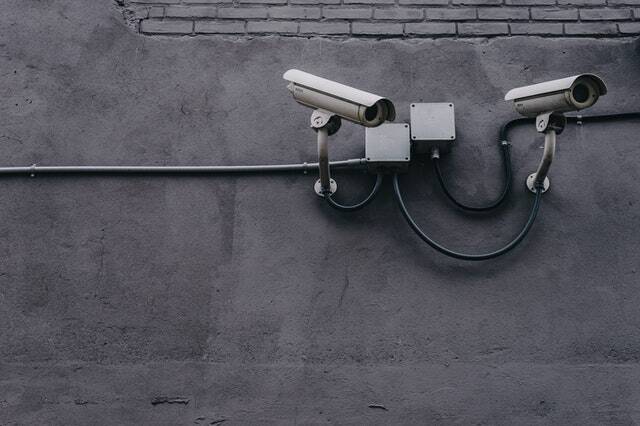In commercial real estate, there are a number of ways to figure out how healthy a project is. Apart from net operating income (NOI), knowing cash flow is a fundamental indicator of letting real estate owners and managers monitor the condition of their assets and offer expected returns to their investors. In today’s blog, we explore some specific reasons why cash flow management is important for a real estate business.
What is Cash Flow?
In commercial real estate, cash flow, which is also known as “funds from operations” (FFO), is the extra money that is left over after paying for things like rent, debt, and capital purchases. It’s basically the difference between how much money you make and how much you spend, like a profit and loss account. However, real estate assets are hard to understand because they involve a lot of different items on the balance sheet. Late rent payments, empty units, running costs, and unplanned events are all things that can have a big effect on cash flow.
Real estate investors need to carefully keep track of their money coming in and going out, and they also need to know a lot about accounting in order to handle their cash well. This information also gives possible investors peace of mind about the investments they are making.
Cash Flow in Net Operating Income (NOI)
Real estate owners know how important cash flow is because it helps them understand their finances better. People who are new to a business often get net operating income (NOI) and cash flow mixed up. Net operating income (NOI) is found by reducing the costs of running the property from the income, which includes rent and other fees. Building maintenance, insurance, and taxes are all part of running costs. However, mortgage and rent payments are not.
There are things called cash flow reports that show how money comes into and leaves a business. They look a lot like balance sheets. Outflows include things like paying the mortgage payment and rental fees. Money coming in includes deposits and money from borrowing. If you want to be good at managing your real estate money, you need to know these things.
Importance of Cash Flow Management in Commercial Real Estate
Managing cash flow in commercial real estate can be challenging for several reasons. Market conditions can fluctuate, affecting rental rates and property values. Tenant-related issues, such as late payments or frequent turnover, can disrupt steady cash flow. To maintain profitability, it’s essential to balance operational and maintenance costs with your revenue. To effectively manage cash flow in commercial real estate, you should implement several key strategies:
Managing Expenses:
Real estate businesses typically have many ongoing expenses, such as property taxes, maintenance costs, mortgage payments, and utilities. Effective cash flow management ensures that there is enough cash available. Especially during rough times, you must cover these expenses and avoid defaulting on loans or neglecting maintenance.
Managing Debt:
Real estate businesses often rely on loans to fund their operations and growth. Effective cash flow management helps ensure that the business can make its loan payments on time, maintain good credit, and avoid defaulting on loans.
Investment Opportunities:
Real estate businesses often need cash to take advantage of investment opportunities, such as buying new properties or renovating existing ones. Effective cash flow management helps ensure that the business has enough cash on hand to pursue these opportunities and generate new sources of revenue.
Seasonal Fluctuations:
Real estate businesses can be subject to seasonal fluctuations in revenue and expenses. Effective cash flow management helps the business prepare for these fluctuations and maintain a stable financial position throughout the year.
Without a doubt, cash flow management is essential for a real estate business to ensure financial stability, maintain good credit, and pursue growth opportunities. Now, let’s take a look at how STRATAFOLIO can help property owners manage this aspect of their business.
Centralized Financial Data:
STRATAFOLIO provides a centralized platform to manage all financial data related to real estate assets, such as rent payments, maintenance expenses, and property taxes. This allows property managers to easily monitor cash flow across their portfolio, quickly identify any issues or discrepancies, and take corrective action.
Automated Rent Collection:
STRATAFOLIO offers automated rent collection, which can help improve cash flow by ensuring timely rent payments. The software sends automated rent reminders to tenants and provides various payment options, such as credit card, ACH, or e-check, making it easy for tenants to pay on time.
Expense Tracking:
STRATAFOLIO allows property managers to track all expenses related to their properties, such as repairs, maintenance, and property taxes. By tracking these expenses, property managers can better understand their cash flow and identify areas where they can reduce expenses.
Budgeting and Forecasting:
STRATAFOLIO can help property managers create and manage budgets for their properties. By forecasting future income and expenses, property managers can better plan for cash flow needs and make more informed financial decisions.
Overall, STRATAFOLIO can help property managers improve their cash flow management by providing centralized financial data, automated rent collection, expense tracking, and budgeting and forecasting tools. Schedule a personalized demo today and see how we can help YOU with cash flow management.






